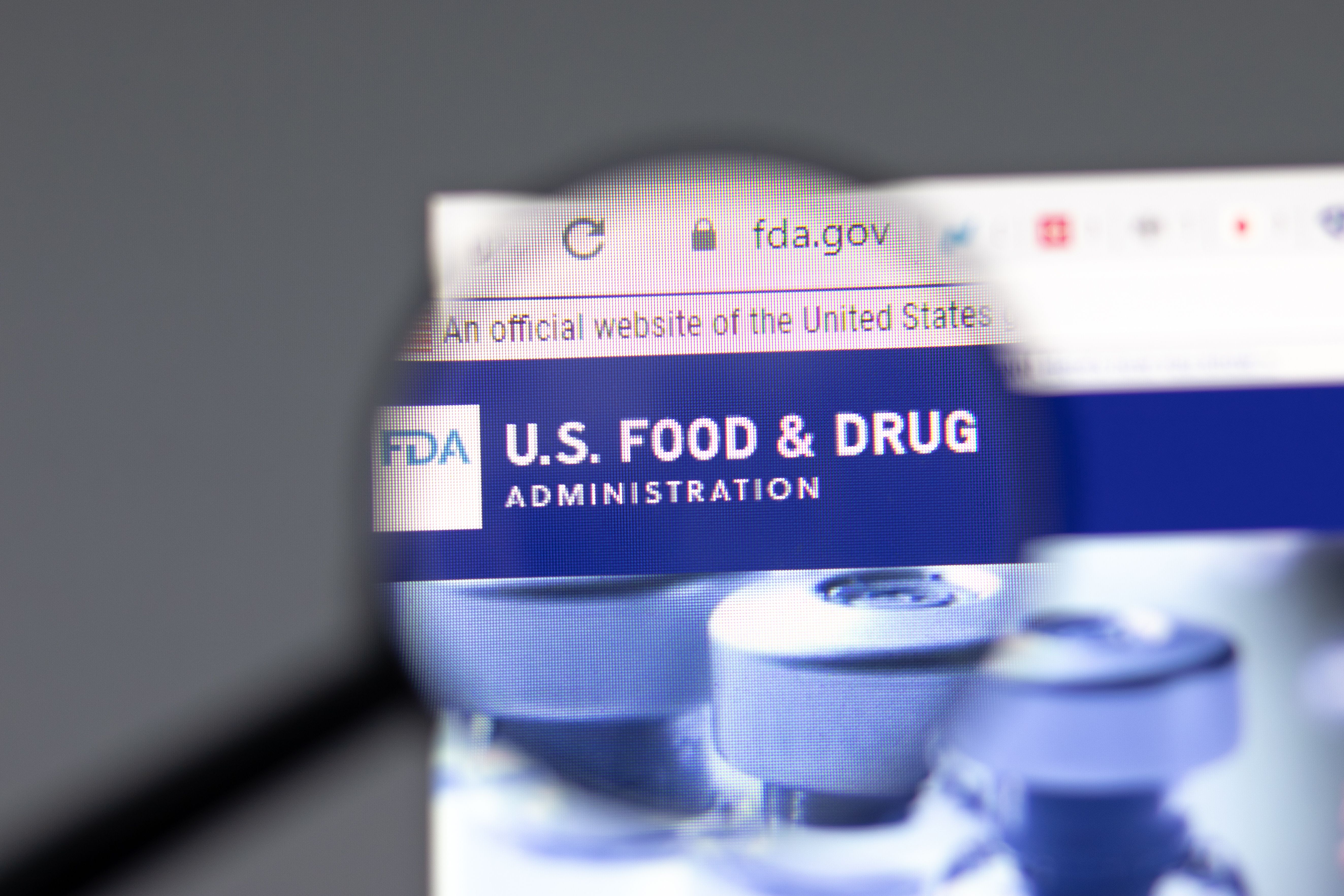- Bone Health
- Immunology
- Hematology
- Respiratory
- Dermatology
- Diabetes
- Gastroenterology
- Neurology
- Oncology
- Ophthalmology
- Rare Disease
- Rheumatology
FDA Approves Pavblu for Retinal Conditions
Amgen’s Pavblu (aflibercept-ayyh) is the fifth biosimilar referencing Eylea (aflibercept) to be approved for American patients with retinal diseases.
The FDA has approved Pavblu (aflibercept-ayyh), the fifth biosimilar referencing Eylea (aflibercept).1 The new product is approved for the treatment of retinal conditions, including neovascular age-related macular degeneration (wet AMD), macular edema following retinal vein occlusion, diabetic macular edema, and diabetic retinopathy.
Pavblu is the fifth aflibercept biosimilar to be approved by the FDA, following Yesafili (aflibercept-jbvf), Opuviz (aflibercept-yszy), Ahzantive (aflibercept-mrbb), and Enzeevu (aflibercept-abzv). | Image credit: Postmodern Studio - stock.adobe.com

Pavblu was developed by Amgen and comes shortly after the FDA approved Enzeevu (aflibercept-abzv) in August 2024.2 All 5 aflibercept biosimilars were approved in 2024, beginning with Biocon Biologics's Yesafili (aflibercept-jbvf) and Samsung Bioepis' Opuviz (aflibercept-yszy) in May 2024, followed by Formycon and Klinge Biopharma’s Ahzantive (aflibercept-mrbb) in July 2024 and Enzeevu.3,4
The approval was based on data from a randomized, double-masked, phase 3 study (NCT04270747) assessing the safety and efficacy of Pavblu (ABP 938) compared with Eylea in patients with wet AMD.5 Overall, 566 patients across 126 global sites were randomized 1:1 to receive 2 mg (0.05 mL) intravitreally of either ABP 938 (Treatment Group A) or aflibercept (Treatment Group B).
The final cohort included 576 patients from 102 centers Canada, Czech Republic, Estonia, Germany, Hong Kong, Hungary, Israel, Italy, Japan, the Republic of Korea, Latvia, Lithuania, Poland, Slovakia, Spain, and the US between June 22, 2020, and January 30, 2023. A majority of the patients were women and 86% were White.
This study included a screening period of up to 4 weeks, followed by 48 weeks of treatment with the investigational product, and a safety follow-up through week 52, for a total study duration of up to 56 weeks. The primary endpoint was evaluated at week 8, measuring the change in best corrected visual acuity using the early treatment diabetic retinopathy study letter score from baseline to week 8 to assess the efficacy of ABP 938 compared to aflibercept.
At week 16, subjects were re-randomized in a masked manner as follows:
- Subjects initially assigned to ABP 938 (Group A) continued receiving ABP 938 via intravitreal injection every 8 weeks from week 16 to week 48.
- Subjects initially assigned to reference aflibercept (Group B) were re-randomized in a 1:1 ratio to either continue on the reference product (Group B1) or switch to ABP 938 (Group B2), receiving IVT injections every 8 weeks from week 16 to week 48.
The study found no clinically meaningful differences between the 2 products, demonstrating the biosimilarity of ABP 938 compared with the reference agent.
Aflibercept Legal Battle
Amgen and Regeneron, the maker of Eylea, are currently involved in a Biologics Price Competition and Innovation Act lawsuit concerning Pavblu.6 On August 13, 2024, a preliminary injunction hearing was held to determine whether Amgen will be blocked from launching Pavblu at-risk. The court’s decision is still pending.
In the filing, Regeneron alleges that Amgen infringed 32 patents covering the manufacturing and use of Eylea when developing Pavblu.
Regeneron has filed similar lawsuits against other biotech companies attempting to develop Eylea biosimilars. In December, a federal judge in West Virginia ruled that Viatris' proposed biosimilar infringed on Regeneron's patent rights.7
References
1. Fifth Eylea® biosimilar FDA-approved: Amgen’s Pavblu™ (aflibercept-ayyh). Venable. August 29, 2024. Accessed September 16, 2024. https://www.jdsupra.com/legalnews/fifth-eylea-r-biosimilar-fda-approved-6326603/
2. Jeremias S. FDA approves biosimilar Enzeevu for eye conditions. The Center for Biosimilars®. August 12, 2024. Accessed September 16, 2024. https://www.centerforbiosimilars.com/view/fda-approves-biosimilar-enzeevu-for-eye-conditions
3. Jeremias S. FDA approves first Eylea biosimilars. The Center for Biosimilars. May 20, 2024. Accessed September 16, 2024. https://www.centerforbiosimilars.com/view/fda-approves-first-eylea-biosimilars
4. Jeremias S. Ahzantive receives FDA approval as new Eylea biosimilar. The Center for Biosimilars. July 1, 2024. Accessed September 16, 2024. https://www.centerforbiosimilars.com/view/ahzantive-receives-fda-approval-as-new-eylea-biosimilar
5. A study to understand effectiveness and safety of ABP 938 compared to aflibercept (Eylea®) in patients suffering with neovascular age-related macular degeneration [neovascular (wet) AMD]. Clinicaltrials.gov. Updated January 5, 2024. Accessed September 16, 2024. https://clinicaltrials.gov/study/NCT04270747
6. Britain B. Regeneron asks US court to block Amgen's Eylea biosimilar. Reuters. January 11, 2024. Accessed September 16, 2024. https://www.reuters.com/legal/litigation/regeneron-asks-us-court-block-amgens-eylea-biosimilar-2024-01-11/
7. Becker Z. Regeneron fends off Viatris' Eylea biosimilar with patent win. Fierce Pharma. December 29, 2023. Accessed September 16, 2024. https://www.fiercepharma.com/pharma/regeneron-fends-viatris-eylea-biosimilar-patent-win
Newsletter
Where clinical, regulatory, and economic perspectives converge—sign up for Center for Biosimilars® emails to get expert insights on emerging treatment paradigms, biosimilar policy, and real-world outcomes that shape patient care.
